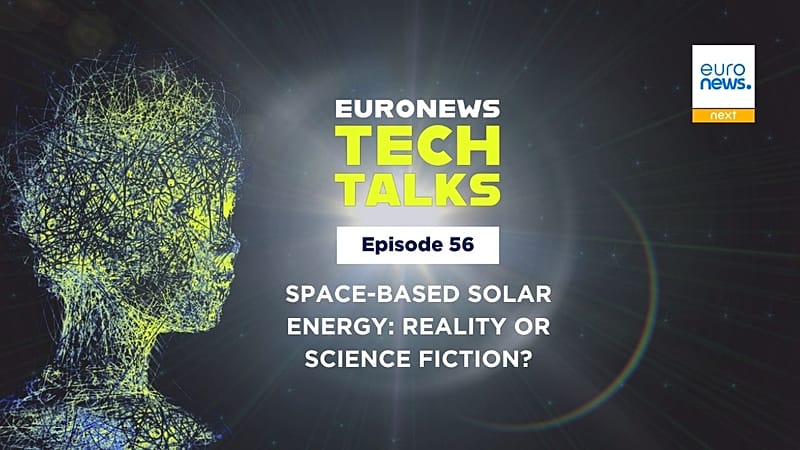Solar energy in space: Reality or science fiction? |Euronews Tech Talks

Solar panels in space could benefit our terrestrial energy mix, but experts differ in their enthusiasm and remain divided on the technology’s maturity.
The idea of harnessing solar energy in space dates back to the first half of the 20th century.
Science fiction writer Isaac Asimov was among the first to imagine building a solar farm in space. In his 1941 short story “Reason,” he tells the story of two astronauts training a robot to operate a solar energy station in space that beams power across the Solar System.
Later, in the 1960s, scientists began developing technologies for deploying space-based solar energy.
So why are solar panels still not orbiting above our heads today?
Space-based solar energy: The debate
Building solar panels in space requires multiple steps. First comes the design and construction of the various components. These components are then launched into orbit by rockets and assembled into a larger structure using robots. Finally, the structure captures sunlight and transmits it wirelessly down to Earth.
It’s not an easy task, but Sanjay Vijendran, co-founder and CTO of TerraSpark, a European private company specialising in space-based solar energy, emphasises that the potential is remarkable.
“If you go up into space where the sun is shining 24/7, you’re able to capture clean energy in a reliable way that is available for the next five billion years,” he told Euronews Next.
Building space-based solar panels would allow us to harness solar energy continuously, yet no one has managed to do it yet, as the project is extremely complex.
In 2024, NASA, the American space agency, concluded that the two space-based energy systems it analysed are extremely expensive and may produce greenhouse gas emissions comparable to existing renewable energy systems.
Despite these difficulties, Vijendran remains optimistic. He believes that the advent of reusable rockets and the mass production of satellites will make the deployment of space-based solar energy easier in the future.
Yet, not all experts agree on the necessity of pursuing this approach.
“It feels a little bit like a race forward when we should be thinking about slowing down,” Francesco Contino, professor at UC Louvain, Belgium, told Euronews Next.
“Going forward together in our society is to look for sufficiency and not to explore new ways to get more and more energy,” he added.
A more balanced opinion is offered by Wei He, senior lecturer in engineering at King’s College London, in the United Kingdom. In August 2025, he published a study suggesting that space-based solar power could reduce Europe’s need for land-based renewable energy by up to 80 per cent.
Commenting on his study, he said: “That technology [space-based solar power] has great potential to bring a lot of benefits for European and many other regions’ decarbonisation, but still there’s a lot of risk around the long-term return”.
What happened to ESA’s project Solaris?
While private companies like Vijendran’s are investing in this technology, space agencies continue to point out that several steps still need to be taken before space-based solar power can be deployed.
At the end of 2022, ESA, the European Space Agency, launched Solaris, a three-year research and development programme to prepare Europe for future decision-making on space-based solar energy.
The programme was welcomed by interest and curiosity from the public and international media, and Vijendran worked on it as one of the main leaders.
The agency commissioned studies, but, as Vijendran explained, “the understanding and the position taken by the agency [ESA] was that the technologies were still relatively immature for moving already to the next step of a demonstration mission”.
“The decision was taken not to pursue Solaris in the way it had been imagined and to continue working on the development of the technologies and improving the maturity before taking further decisions on where to go with space-based solar power,” he continued.
Vijendran told Euronews Next that the Solaris project ended around August 2024, yet at the time the podcast was written, it was difficult to find any information about the space-based solar energy project on ESA’s website, especially after April 2024.
Euronews Next asked ESA for the Solaris programme studies, but they were not provided.
Yesterday




